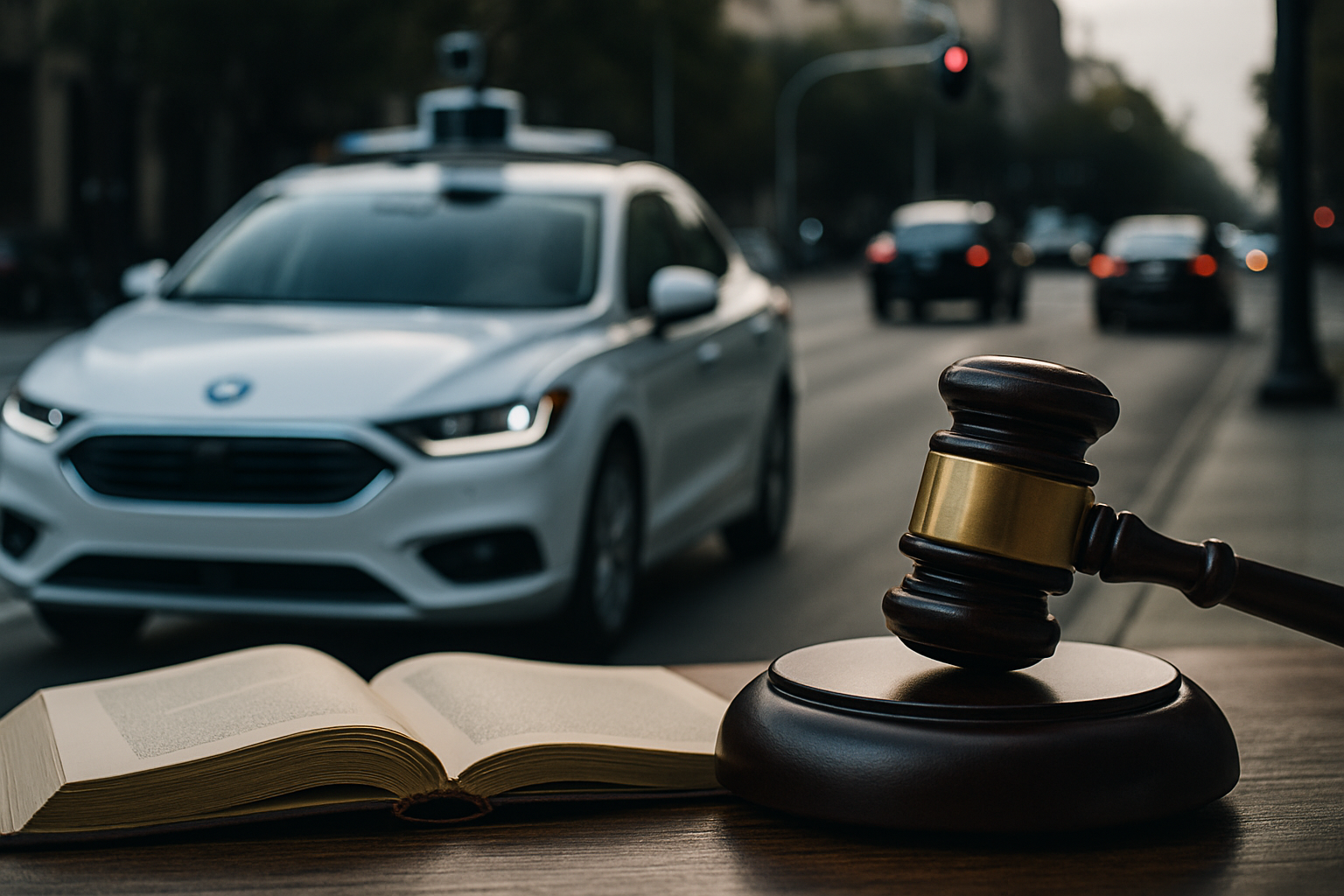Legal Implications of Autonomous Vehicles in Traffic Law
Introduction: As autonomous vehicles inch closer to widespread adoption, the legal landscape faces unprecedented challenges. This article delves into the complex intersection of traffic law and self-driving technology, exploring how existing regulations are being reshaped and new laws crafted to accommodate this revolutionary mode of transportation.

Redefining Liability in Accidents Involving Autonomous Vehicles
One of the most pressing legal challenges posed by autonomous vehicles is the question of liability in the event of an accident. Traditional traffic laws assign responsibility to the driver, but in a self-driving scenario, the lines blur. Should liability fall on the vehicle manufacturer, the software developer, or the owner? Some jurisdictions are exploring a shift towards product liability law, where manufacturers could be held responsible for accidents caused by vehicle malfunction. This paradigm shift could have far-reaching implications for insurance policies and accident investigations.
Traffic Violations and Autonomous Vehicles
Another area of legal ambiguity concerns traffic violations. How do we apply concepts like speeding tickets or running red lights to vehicles that operate without human input? Some lawmakers propose that manufacturers should be held accountable for programming vehicles to adhere to traffic laws. Others suggest that the vehicle’s owner should bear responsibility, similar to how car owners are currently liable for parking violations. As autonomous technology advances, traffic codes may need to be entirely rewritten to accommodate these new realities.
Data Privacy and Security in the Age of Connected Cars
Autonomous vehicles generate and process vast amounts of data, raising concerns about privacy and data security. Legal frameworks are being developed to address issues such as who owns the data collected by these vehicles, how it can be used, and what safeguards must be in place to protect it from cyberattacks. The European Union’s General Data Protection Regulation (GDPR) has set a precedent for data protection, but many jurisdictions are still grappling with how to apply these principles specifically to autonomous vehicles.
The Challenge of International Harmonization
As autonomous vehicles become more prevalent, there’s a growing need for international harmonization of traffic laws. Differences in regulations across borders could pose significant challenges for manufacturers and users alike. Organizations like the United Nations Economic Commission for Europe (UNECE) are working towards creating uniform standards for autonomous vehicle technology and operation. However, achieving global consensus on these issues remains a complex and ongoing process.
Ethical Considerations in Autonomous Vehicle Programming
Perhaps one of the most thought-provoking legal challenges posed by autonomous vehicles relates to the ethical decisions programmed into their operating systems. How should a vehicle be programmed to react in a situation where harm is unavoidable? Should it prioritize the safety of its passengers over pedestrians? These ethical dilemmas have legal implications, as lawmakers must decide how to codify these decision-making processes and who should be held accountable for the outcomes.
In conclusion, the advent of autonomous vehicles is forcing a radical rethinking of traffic laws and regulations. As technology continues to evolve, legal frameworks must adapt to ensure safety, clarify liability, protect privacy, and address ethical concerns. The coming years will likely see significant developments in this area of law, as legislators, courts, and policymakers grapple with the complexities of integrating self-driving vehicles into our existing traffic systems. The legal landscape surrounding autonomous vehicles is not just about accommodating new technology; it’s about reshaping our understanding of responsibility, safety, and mobility in the modern world.






